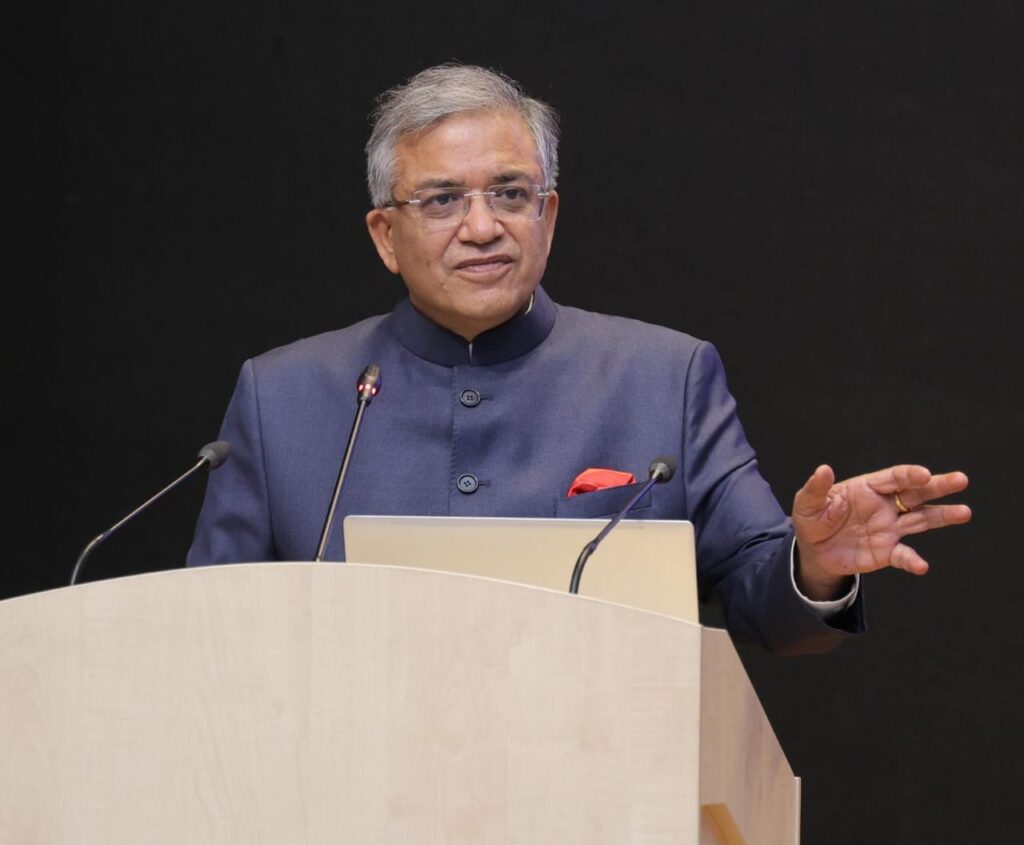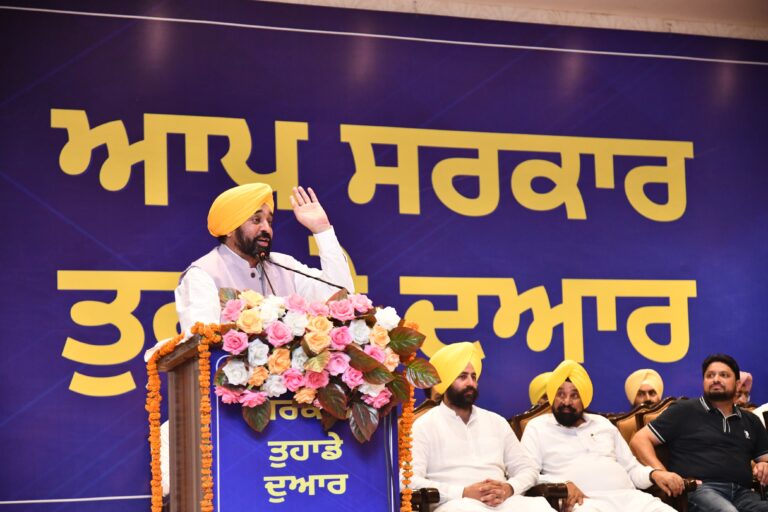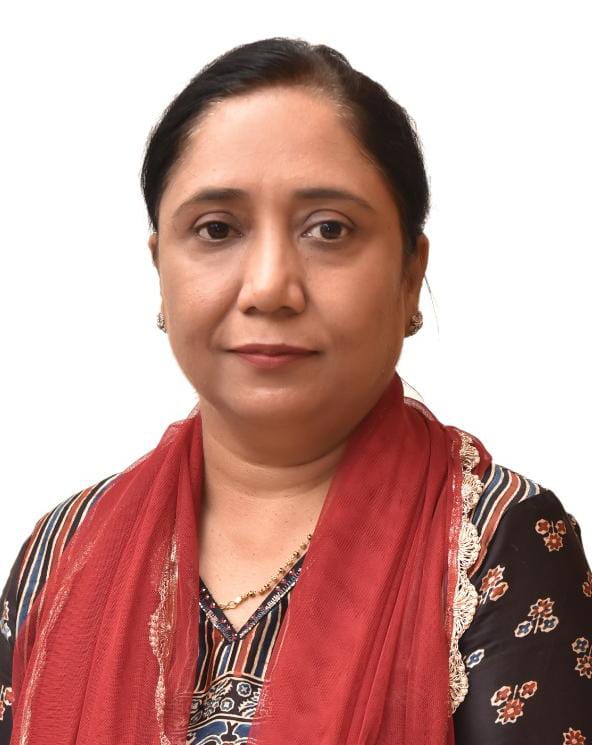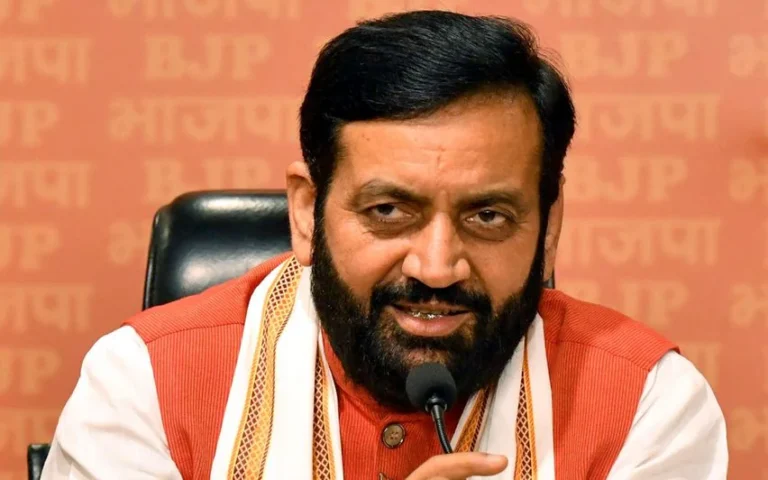
Chandigarh, May 29
Punjab Chief Electoral officer Sibin C informed that in a major push to enhance voter experience and streamline election management, the Election Commission of India (ECI) has launched 21 new initiatives over the past 100 days. These measures span procedural reforms, training programmes, and stakeholder engagement.
A slew of purposeful, pragmatic and proactive measures has marked the first 100 days of the 26th Chief Election Commissioner Gyanesh Kumar assuming office. The vision for a reinvigorated ECI was charted out by the CEC in the presence of Election Commissioners Dr. Sukhbir Singh Sandhu and Dr. Vivek Joshi during the Conference of Chief Electoral Officers (CEOs) held in March 2025.
To improve voter access, the ECI has revised the maximum number of electors per polling station from 1,500 to 1,200. Additional polling booths will be established in densely populated areas such as gated communities and high-rise buildings. The Commission aims to ensure that no voter is required to travel more than 2Km to cast their vote.
Voter Information Slips have been redesigned for clarity, with enhanced visibility of serial and part numbers.
As a significant boost to the convenience of voters, Mobile Deposit Facility will be setup at the entrance of every Polling Station. Booths set up by candidates will now be permitted just beyond 100 meters of the entrance of the Polling Station as opposed to 200 meters from the Polling Station premises.
To facilitate a simpler user interface, a single-point new Integrated Dashboard – ECINET has been developed with aim to provide all services for all stakeholders at a single point, instead of the existing 40+ Apps/Websites. Some modules of ECINET will be made available in the current bye-polls and by the time of Bihar Assembly elections the entire Dashboard will be available for use by different stake holders.
The ECI has initiated direct integration of death registration data from the Registrar General of India to enable timely and verified removal of deceased electors from the rolls. Booth Level Officers (BLOs) will continue to play a central role in verification, with updates carried out following field-level checks.
Special Summary Revision has been conducted ahead of a bye-election as prescribed in the RP act, 1950. This is the first such exercise to be conducted ahead of a bye-election.
In a move to institutionalise regular interaction with political stakeholders, the ECI facilitated 4,719 meetings across the country with participation from over 28,000 political party representatives. These included 40 meetings at the CEO level, 800 at the DEO level, and 3,879 at the ERO level. The Commission has also held consultations in New Delhi with leaders of recognised political parties, including AAP, BJP, BSP, CPI(M), and NPP, with more meetings with the National political parties and State political parties planned after the current bye-polls.
The ECI has expanded training programmes for Booth Level Officers (BLOs), BLO Supervisors, and Booth Level Agents (BLAs). Over 3,500 BLOs/BLO Supervisors have been trained at the India International Institute of Democracy and Election Management (IIIDEM), which is now tasked with scaling training to over one lakh BLO Supervisors in the coming years. These supervisors will in turn train the larger BLO network of over 10.5 lakh functionaries.
By the middle of July this year, nearly 6000 more BLOs/BLO supervisors would be receiving their training in around 20 batches. Special focus would be on states like Bihar, Tamil Nadu, Puducherry, West Bengal, Kerela and Assam which would be going for assembly polls in the near future.
To support identification and accessibility, all BLOs will be issued standardised photo identity cards. Training has also been extended to BLAs from recognised political parties, with initial batches from Bihar, Tamil Nadu, and Puducherry completing sessions at IIIDEM.
Officials from CEO media cells have received orientation on media engagement, aimed at improving the quality and timeliness of public communication. In addition, training sessions have been conducted for police officers from Bihar, underlining the multi-agency nature of electoral preparedness.
A comprehensive training framework has been developed for 28 categories of stakeholders identified across the electoral process. These modules are based on provisions of the Representation of the People Acts, 1950 and 1951, the Registration of Electors Rules, 1960, and the Conduct of Election Rules, 1961, along with ECI instructions. These stakeholders will also undergo training at IIIDEM.
Among other reforms, the ECI has implemented biometric attendance at its headquarters, activated the E-Office system, and instituted regular CEO-level review meetings. These measures are intended to improve internal coordination and operational efficiency.
ECI also convened a National Conference of Counsels representing the Election Commission of India at IIIDEM, New Delhi. Senior Advocates from the Supreme Court of India and 28 High Courts including its benches across the country along with the officials and 36 CEOs of all States/UTs participated in the Conference. This initiative aimed at developing synergies and reorienting the legal framework of the Commission to meet emerging challenges more effectively.
*
List of 21 New Initiatives by Election Commission of India (Feb 19, 2025-May 29, 2025)
- Maximum number of voters at a polling station has been restricted to 1200
- Additional polling booths will be set up in High Rises / Colonies
- For Electoral Roll updation, data of Death registration to be directly obtained from RGI database; will be updated after verification
- Voter Information Slips to be made more elector friendly: serial number and part number of the voter will now be displayed more prominently
- Provision of mobile deposit facility just outside the polling stations
- Pan-India All-Party meetings conducted at the CEO/DEO/ERO level. 4,719 meetings held (CEO-40/ DEOs-800/EROs-3879); over 28,000 representatives of political parties participated
- Election Commission meetings with heads of National & State political parties – AAP/BJP/BSP/CPI(M)/NPP
- Capacity building programmes for Booth Level Agents of Political Parties at IIIDEM (Bihar, TN & Puducherry)
- Relaxing the distance norms for canvassing – candidates/political parties now permitted to set up booths beyond 100 meters as opposed to 200 meters
- Introduction of new Integrated Dashboard – ECINET, with aim to provide all services for all stakeholders at a single point (Single App to replace 40 + Apps/Websites)
- Duplicate EPIC Number issue resolved; new mechanism for Unique EPIC numbers in place
- 28 stakeholders were identified in the entire process of preparation of electoral rolls and conduct of elections, including electors, election officials, political parties, candidates and others based on Representation of the People Act 1950, 1951, Registration of Electors Rules 1960, Conduct of Election Rules, 1961 and the instructions issued by the ECI from time to time
- For each of these stakeholders: training presentations are being prepared based on the Acts, Rules and Instructions of the Commission
- National Conference of Counsels representing ECI and CEOs organized to strengthen synergy and reorient legal framework
- BLOs to get Standard Photo ID Card
- Capacity building programmes at IIIDEM, New Delhi:
- More than 3500 Booth Level Supervisors already trained at IIIDEM
- Nearly 6000 BLOs/BLO Supervisors to be trained in the next 45 days in 20 nearly batches
- Over 1 lakh BLO Supervisors to be trained in next few years
- Orientation programme for media officers from CEO offices of all 36 States/UTs at IIIDEM conducted
- Training conducted for Police Officers from Bihar at IIIDEM
- Implementation of Biometric Attendance
- Operationalisation and Roll Out of E-Office
- Regular meetings of ECI with CEOs of all 36 States/UTs and synergizing functioning of their offices with various divisions in ECI.




